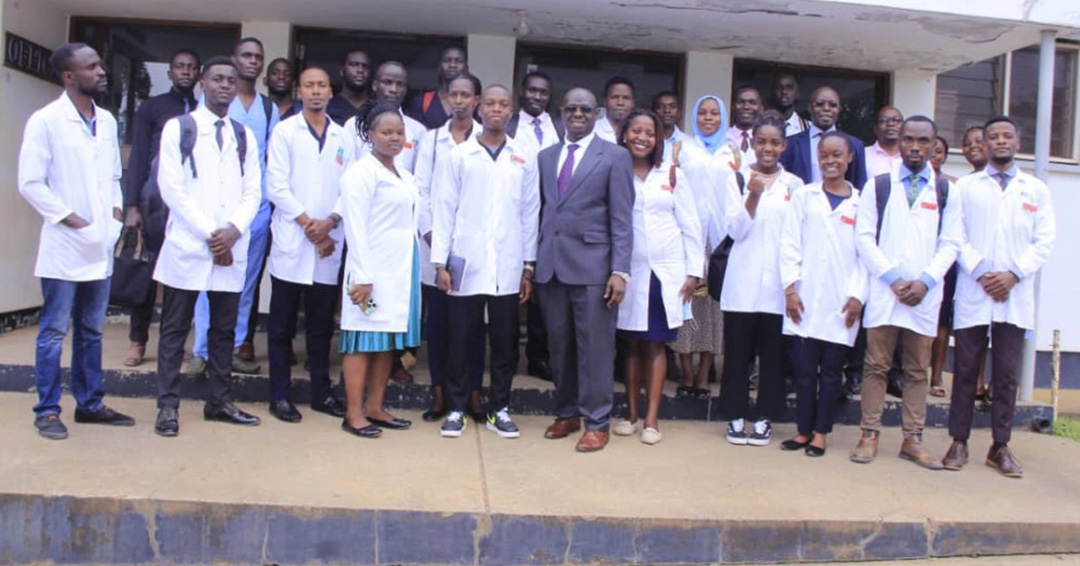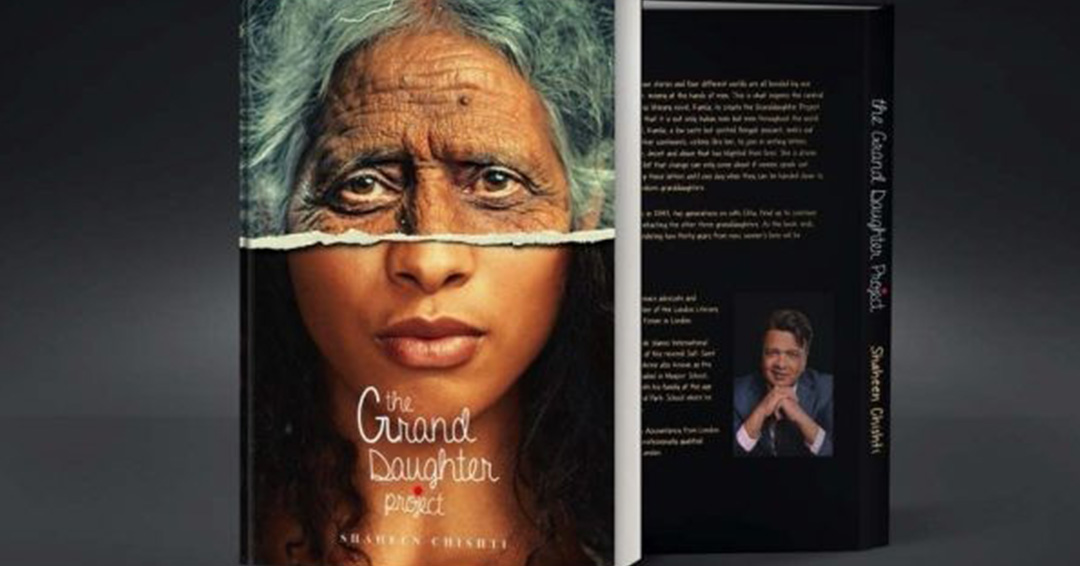
Sep
KIU Teaching Hospital Strengthens Partnership With Kitagata General Hospital
September 5, 2024, 9:40 am
 Administrator
Administrator

By Rogers Wanambwa
KIU, Main Campus - Written by British-Indian author, Shaheen Chishti, The Grand Daughter Project follows the unintentionally woven-together lives of three women, Kamla, Lynette, and Helga, from three different continents who experience so much trauma at the hands of the men in whose care the women are entrusted. Through letters written to their granddaughters, they tell spell-bounding stories that shake up the reader's faith and notions in many different things.
It delves into the gut-wrenching themes of gender inequality, war on races, especially minorities, female emancipation, immigration, poor parenting, and many more. Shaheen tactfully brings the reader to the Holocaust that saw the baffling and senseless murder of six million European Jews during World War II, the 1958 Notting Hill race, and even the catastrophic Bengal Famine of 1943 that took the lives an estimated three million people.
Surprisingly captivating and raw, The Grand Daughter Project aims at addressing and pointing out the injustices and reckless nature of some men who use their positions to mistreat and abuse, and who are downright careless with women. Yet, it also sheds a ray of hope, showing the improvements reached regardless of the long journey ahead to achieving equality and better treatment of women.
Through Helga, a holocaust survivor who grew up in Anschluss, Austria, the reader is catapulted into the middle of the Holocaust and brought to question, again, why things happened as they did and how similar conditions are brewing today in different parts of the world. It brings one to pose and ponder about what brings hate in people's hearts.
Kamla, born during the Bengali Famine, tells a story similar to many hunger-stricken parts of the world, even here in Africa. But, again, it begs the question of whether enough is being done to helps these people. In her eyes, it appears as though no one came to the rescue. Sounds familiar, right? Through her story, alcoholism and domestic violence are addressed, where her father was an alcoholic who tortured her mother for as long as she lived. Yet Kamla survives despite all this, survives and ends up working at a shelter home helping other women.
Through Lynette, born in the Caribbeans, immigration, early childhood prostitution, drug abuse, and other vices like rape get addressed. Yet, even when her mother and her move to London, life doesn't become as rosy as expected - a realization many immigrants face. Again, racial discrimination is addressed in the Notting Hill riots, where Lynette is beaten and hospitalized. She would survive, though, to tell her story.
The book graphically, and in detail, tells the reader how women were ill-treated. As it is, millions of women get treated the way these three women were. It's subtle and openly calls out on the injustices women faced and continue to face. It is an excellent torch into issues concerning the place of women in society.
The Grand Daughter Project comes when many women face domestic and gender violence due to the COVID-19 pandemic and subsequent lockdowns. These issues need to be solved, and it does a fantastic job of highlighting them. Timely indeed.
Kampala International University,
Box 20000, Ggaba Road, Kansanga, Kampala
+256-760 502660
+256-700 100808